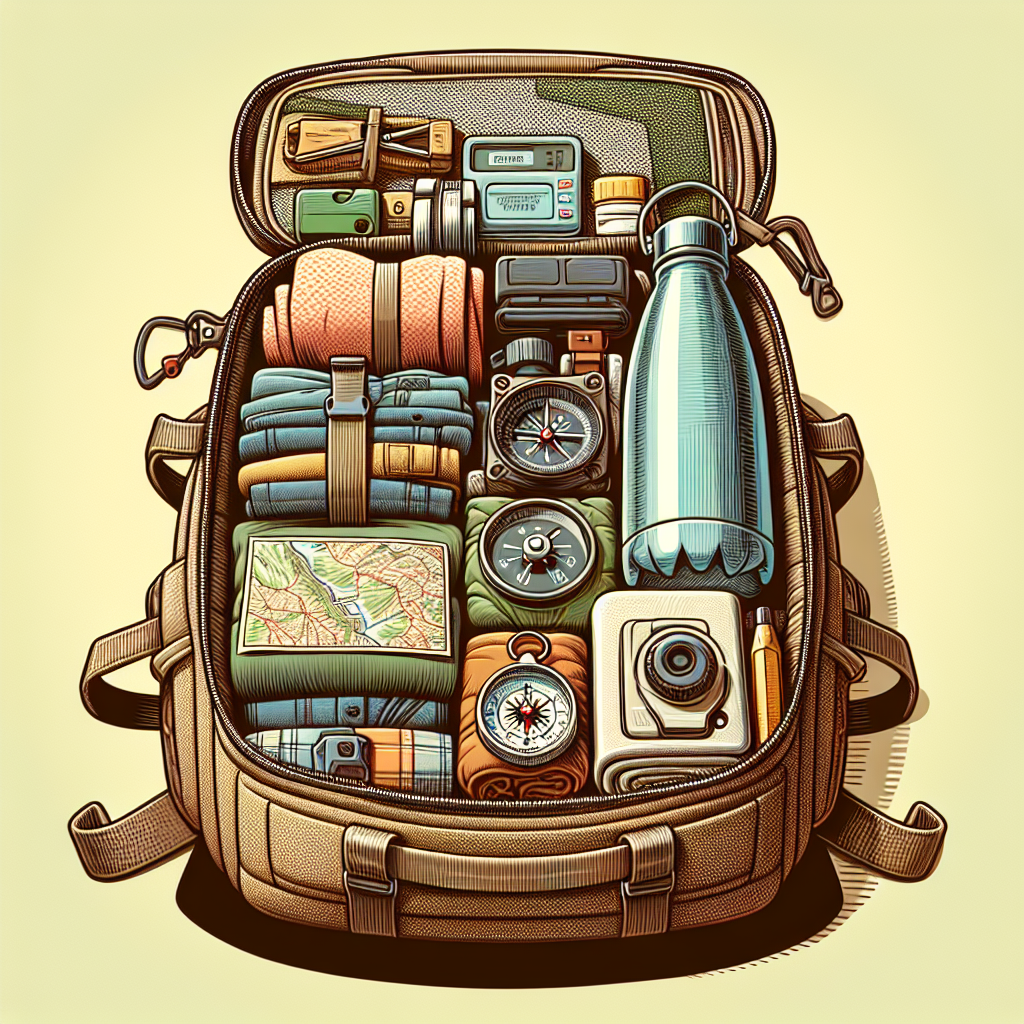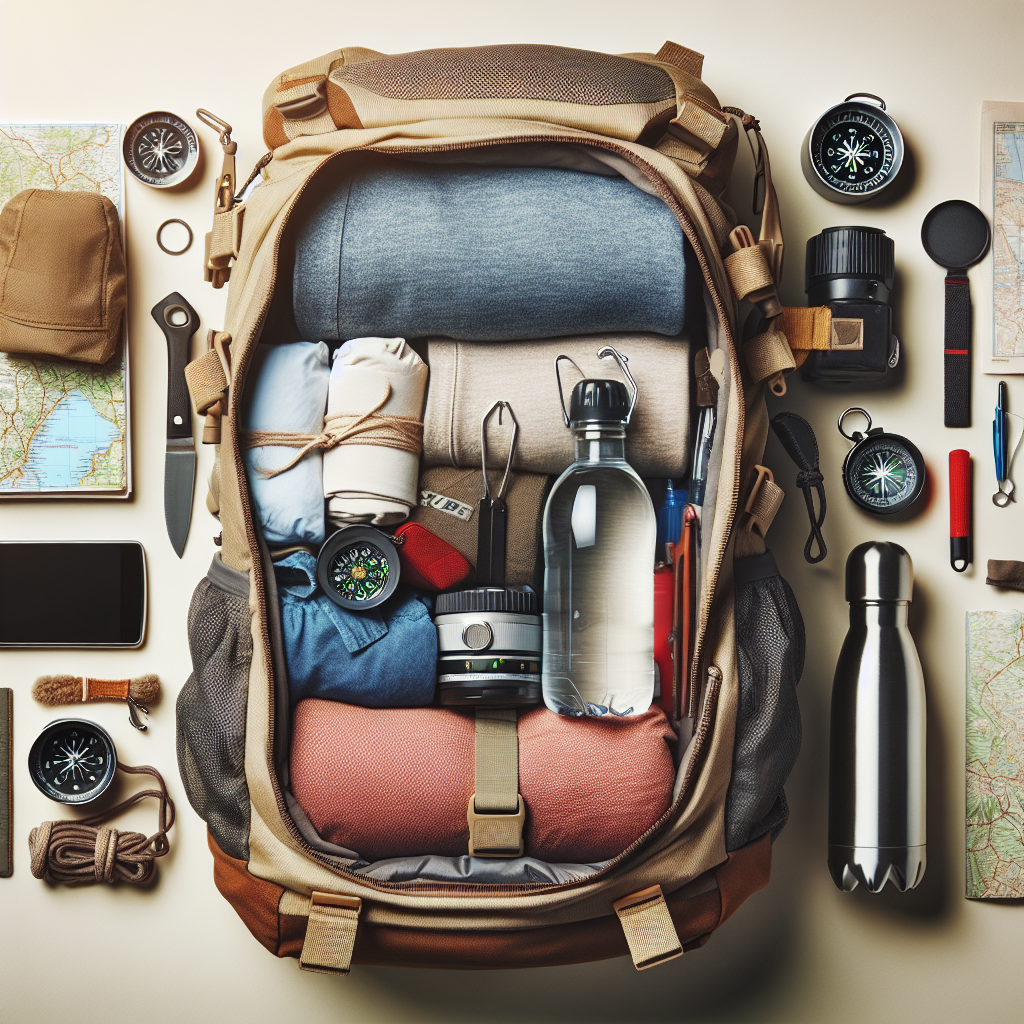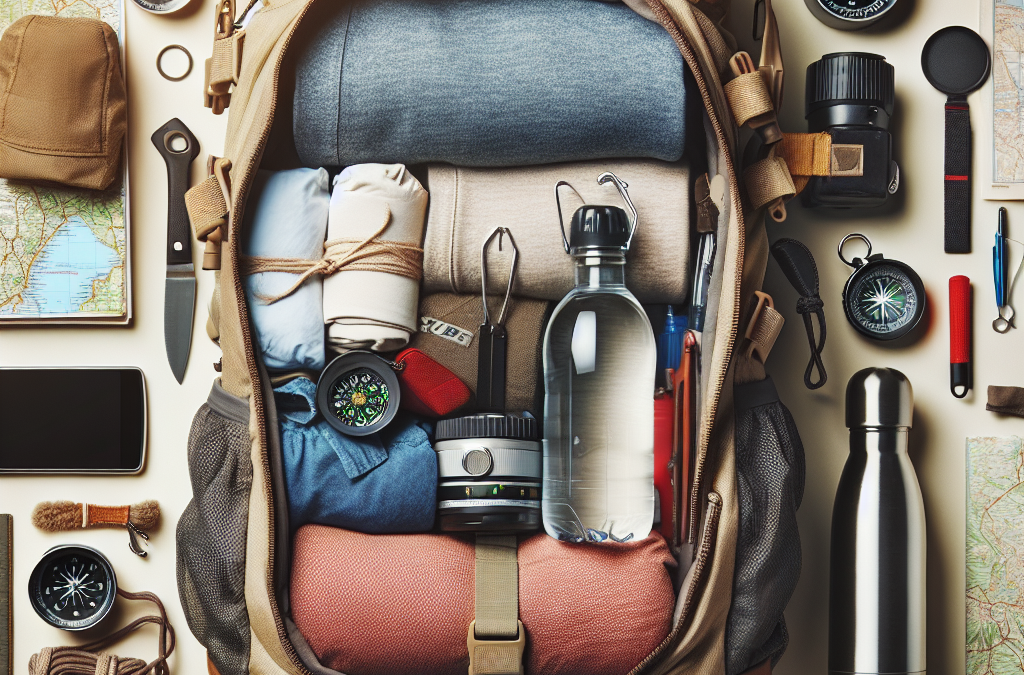Have you ever dreamt of embarking on a remote hiking adventure but felt overwhelmed by the thought of packing? Backpacking Basics: Packing Light and Efficient is the perfect guide for you. This article enlightens you with essential tips and recommendations on how to pack your backpack for your wild journey without losing its portability. You’ll learn how to choose essential items wisely, arrange them deftly for ease of access, and distribute the load evenly to maintain your comfort all the way through your trip. With this knowledge at your fingertips, you’re one step closer to becoming a seasoned backpacker.
Understanding the Basics of Backpacking
Backpacking is your chance to embrace the open road, marvel at stunning landscapes, and immerse yourself in diverse cultures. At the most basic level, backpacking involves traveling from place to place with everything you need in a backpack. All the essentials, including clothing, food, water, and shelter, are carried on your back, maximizing flexibility and freedom of movement. But before embarking on a backpacking adventure, there’s a lot to learn!
The concept of backpacking
The concept of backpacking is hugely appealing for those who crave simplicity and adventure. At its core, it’s about stripping away the extravagances and distractions of everyday life, and embracing a minimalist lifestyle, carrying only what is necessary on your back. Backpacking could involve trekking through wilderness trails or wandering through new cities, or a bit of both!
Importance of packing light and efficient
Efficient and light packing is crucial to any successful backpacking trip. Carrying a heavy and uncomfortable pack can quite literally weigh you down, impinging on the enjoyment of your trip. Light packing also allows for greater mobility, aiding in long hikes, treks, or simply squeezing into a packed bus in a bustling city. Understanding the importance of effective packing is the first step towards a rewarding backpacking experience.
The benefits and challenges of backpacking
Backpacking is a journey filled with numerous benefits and challenges. The benefits are numerous – the freedom to explore unknown territories, the ability to meet new people, experiencing new cultures, and so much more. However, the challenges are equally present. From physical demands to language barriers, unpredictable weather, and occasional loneliness, backpacking is not all rainbows and sunshine.
Choosing the Right Backpack
The backbone of your backpacking journey (literally) is your backpack. Based on the length and nature of the trip, the perfect backpack can greatly enhance your comfort and convenience.
Understanding backpack sizes
Backpack sizes come in a variety of sizes, measured in liters of capacity. Generally, a weekend trip (1-3 nights) requires a 30-50 liter backpack, while a multi-day trip (3-5 nights) requires 50-70 liters, and extended trips (5+ nights) may need 70 liters or more.
Choosing a backpack based on trip length
Choosing a backpack based on your trip length ensures that you can adequately carry your essentials without overpacking or underpacking. For short overnight trips or minimalist travel, a smaller pack can suffice. But for longer trips with more gear, larger backpacks will be necessary.
Keeping weight and comfort in mind
Maintaining a balance between the backpack weight and comfort can be a tricky affair. A light backpack might be comfortable to carry, but may not be sturdy enough for heavier loads. On the other hand, a robust backpack might be able to accommodate all your gear but can become a burden over time. This is where features like padded straps, ventilated back panels, and adjustable harnesses prove beneficial.
Importance of durability in backpacks
The durability of your backpack is paramount. A good quality backpack, although more expensive, will hold up against wear and tear, potentially saving you money and headache in the long run.

Essentials of Lightweight Backpacking
Scaling down your pack weight without compromising on essentials is the mantra of lightweight backpacking. Here’s how you can achieve it!
The 3 ultralight backpacking ‘Biggies’
The ‘biggies’ of ultralight backpacking refer to your backpack, shelter, and sleeping system. Having ultralight alternatives for these three can dramatically reduce the pack weight!
Clothing essentials for backpacking
When packing clothing, the key is to balance between weight and functionality. You should pack enough to stay warm and dry in any weather condition you might face, but avoid any unnecessary extras.
Food and water management
Managing food and water supplies efficiently is crucial for your overall backpack weight. Opt for lightweight, high-calorie foods, and filter or treat water on the go, rather than carrying excess water weight with you.
Importance of lightweight shelter and bedding
A good night’s sleep is invaluable on the trail. Select lightweight yet effective options for your shelter and bedding like an ultralight tent or bivy sack, and a compact sleeping bag or quilt.
Efficient Packing Techniques
Packing efficiently is a skill that can significantly improve your backpacking experience. It helps utilize your backpack space perfectly and makes accessing items on the go simpler.
The concept of compartmentalization
Compartmentalization involves dividing your backpack into different sections or compartments for specific items or categories of gear. This makes organizing your items and locating them easier.
Optimizing clothing rolls and folds
Certain methods of folding or rolling clothes can save precious space and keep your attire wrinkle-free. Explore techniques like military roll or ranger roll for your clothing items.
The roles of packing cubes and compression sacks
Packing cubes and compression sacks can prove to be lifesavers. Not only do they help save space, but they also keep your gear organized and easy to access.
Order of packing items for easy accessibility
Packing in the right order is vital for ease of accessibility. Keep items you’ll need often or urgently at the top or in side pockets, and less frequently used items at the bottom or in the middle.

Reducing Backpack Weight
Reducing backpack weight can elevate your backpacking experience by reducing stress on the body and increasing mobility. Here are some tips:
Packing minimal clothing
Consider packing clothes that can be used for multiple purposes and remember, you can always wash clothes and wear them again.
Using multipurpose gear
Choose gear that has more than one function, such as a spork (spoon and fork), or a sleeping bag that can double as a blanket.
Limiting food and water weight
Carry lightweight, high-energy foods and limit water by using filtration systems or water treatment methods on the go.
Weighing and balancing gear
Regularly weigh your pack and manage the distribution of weight. Heavier items should be close to your back and centered in your pack.
Sustainable Backpacking
Sustainable backpacking involves traveling in a way that respects and conserves the natural environment, local cultures, and economies.
Leave No Trace Principles
Adhering to the ‘Leave No Trace’ principles involves respecting wildlife, leaving what you find, minimizing campfire impacts, disposing of waste properly, and more.
Reducing waste during backpacking
Reduce waste by choosing reusable over disposable, buying in bulk, and avoiding over packaged items.
Eco-friendly backpacking gear
Opt for backpacking gear made from recycled materials or those that are biodegradable.
Health and Safety during Backpacking
Ensuring safety during a backpacking adventure is of utmost importance. Here’s how to safeguard your health and safety on the trail:
Importance of First Aid Kit
Carrying a first aid kit is mandatory on any trip. Emergencies are unpredictable and it’s better to be prepared.
Significance of sun protection
Continuous exposure to sun can result in sunburns or worse. Sunglasses, sunscreen, and hats can provide vital protection against harmful UV rays.
Staying hydrated
Staying hydrated keeps your energy levels up. Carry enough water and refill at every opportunity.
Backpacking safety tips
Always let someone know your travel plan, be aware of the local flora and fauna, and be prepared for all kinds of weather.
Use of Technology in Backpacking
At first, technology and backpacking might seem at odds with each other, but strategic use of tech can actually aid your backpacking experience.
Lightweight tech gadgets for backpacking
Compact, lightweight tech gadgets like multi-functional watches, headlamps, and small cameras can prove beneficial.
Use of GPS and Navigation tools
GPS and navigation tools can help you stay on track and avoid getting lost.
Solar Chargers and Power Banks
Solar chargers and power banks ensure that your devices always have power, especially in remote areas.
Handling Food and Cooking Efficiencies
Handling food and managing cooking is no small task during backpacking. Here’s what you should consider:
Choosing lightweight, high-energy food
Opt for high-energy, non-perishable, and easy-to-cook food items. Dehydrated meals, nuts, dried fruits, energy bars, and jerky are good options.
Cooking gear essentials
A lightweight stove, fuel, and a single pot can meet most, if not all of your cooking needs.
Meal planning and preparation tips
Plan your meals ahead, considering the energy value, weight, and cooking time needed for each meal.
Necessary Documentation for Backpacking
Backpacking usually involves navigating through different rules and regulations. Getting your documentation right is key to a hassle-free journey.
Importance of Insurance
Travel insurance can cover you for any unexpected incidents or illnesses during your trip.
Keeping a record of important information and documents
Keep a record of all important documents like passports, driver’s licenses, visas, and credit cards. Have both digital and physical backups if possible.
Local permits and laws related to backpacking at the destination
Before heading out, familiarize yourself with the local permits, rules, and laws of your backpacking destination.
Backpacking is indeed a complex yet rewarding journey. Understanding these basics can turn novices into efficient backpackers. Happy Backpacking!

